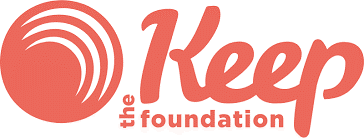Blockchain Disruption is Coming to the Telecom Industry
You’ve probably noticed all the people staring down at the glowing rectangles in their palms. It’s happening in business meetings, on the train, at the dinner table, and during movies. Smartphones, perhaps the most ubiquitous and universal personal technology, are making their mark on the digital age, and it’s hard not to appreciate it.
Approximately 2.5 billion people own a smartphone, which is slightly more than 35% of the entire global population. However, in the most developed nations, that number easily exceeds 75%. That’s a rapid adoption rate for a product that’s been widely accessible for less than a decade.
What are people doing with these smartphones? They’re keeping busy, and they’re creating a lot of data. What’s more, they’re building a lot of value for the telecom companies that facilitate this ecosystem.

The Metrics of the Telecom Industry
In the U.S., the two most prominent telecom companies, AT&T and Verizon, have annual revenue streams that exceed $300 billion. That’s just a slice of the entire global pie that easily surpasses $1 trillion.
In part, these companies make their money selling inflexible data plans to needy consumers.
Meanwhile, consumers are busy using that data in massive ways. According to Forbes, each minute the billions of social media users send 527,600 photos on Snapchat, they watch more than 4 million videos on YouTube, and they send almost 500,000 Tweets on Twitter.
At the same time, more than half of Google’s 3.5 billion daily searches are placed on smartphones. Larger, more powerful devices make mobile data use a natural commodity in the digital age.
In virtually every way, these numbers are not stagnant. Instead, they are rapidly increasing. According to TechCrunch, the average person spends five hours a day on his or her smartphone, a 20% increase from the year before.
As people become increasingly reliant on cellular data, it’s time to reconsider the relationship between telecom conglomerates and the data that they provide. Nobody wants to be at the mercy of a large corporation, and fortunately, the emergence of blockchain technology is providing solutions to that problem.
A Decentralized Exchange for Cellular Data
KeepGo, a longtime player in the telecom industry, is announcing a decentralized data exchange that allows anyone to buy or sell data at market-driven prices.

Because everyone’s data consumption is unique, but contract plans are rigid and unyielding, people frequently have excess data that they don’t use, or they incur overage charges for exceeding their plan’s limitations.
With KeepGo, both scenarios are fixable. Using a simple mobile app, KeepGo users can purchase additional data to keep their plan rolling through the end of the month. Moreover, the price of this data is decided by simple supply and demand economics, so no one controls the asset’s price.
In contrast, cellular carriers, aware that users face steep fines if they exceed their data limit, can charge outrageous prices for additional data.
For users with data to spare, they can monetize the excess. In many ways, this resembles other services offered in the gig economy, which focuses on the earning potential of unused or underutilized assets. With KeepGo, data plans become a sellable asset that incentivizes participation in the digital age while also ensuring that access to data is attainable and easy to come by.
Keep Foundation is a blockchain-based exchange, so buying and selling data is facilitated by the platform’s native KEEP token. By employing a digital currency to make transactions, users preserve the value of the data while operating with extreme functionality and speed. Each transaction is empowered by the blockchain’s smart contracts, which gives the entire experience the ease of automatic with the guarantee of a legal contract.
The exchange is developed by The KeepGo Foundation, a non-profit collective providing the open source code for the project. KeepGo is the founding member of the foundation, and they bring the products and intellectual assets from their developments in the telecom industry to the table.
Keep Foundation joins a collection of blockchain initiatives aimed at the telecom industry. For example, DentWireless is using the Ethereum blockchain to create a structure for buying and selling cellular data in a p2p fashion. Meanwhile, BubbleTone uses blockchain technology and digital currency to facilitate a roaming-free callings structure for mobile users. In contrast, Q Link Wireless harnesses the power of the blockchain to create a government-funded cellular data plan for qualified low-income individuals.
To be sure, there is no indication that smartphone use or data consumption has peaked or will slow anytime soon. In fact, as devices become more affordable, connectivity more universal, and smartphone use more acceptable, it’s likely that this is just the beginning of the age of the smartphone. That doesn’t mean that consumers have to be restrained by this existing telecom ecosystem. With KeepGo, anyone can participate in and profit from the mobile data industry. It’s as expansive as the opportunities for its users.



